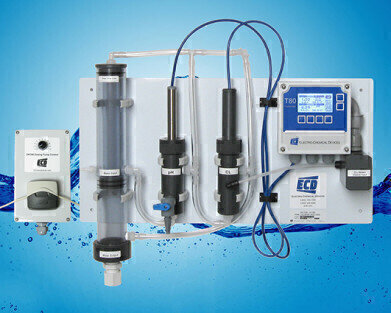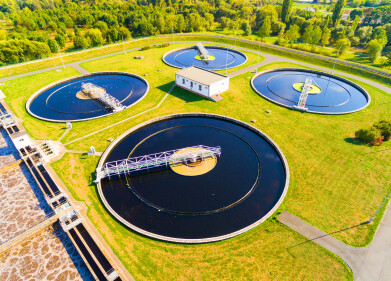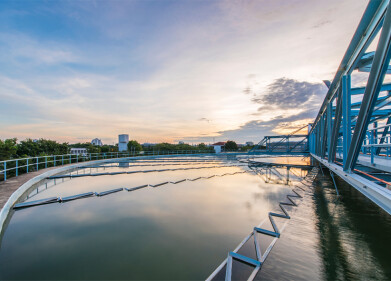Water/Wastewater
Plug-‘n-play de-chlorination analyser measures near zero chlorine levels with repeatable accuracy
Jan 05 2021
Municipal water system and industrial process engineers in search of an analyser that accurately measures near zero levels of chlorine will want to learn more about the plug-n-play, long-life DC80 De-Chlorination Analyser from Electro-Chemical Devices (ECD), which utilises a zero-shift methodology to ensure stable and reliable chlorine measurement prior to effluent discharge.
When measuring near zero amounts of chlorine, conventional amperometric chlorine sensors are unstable, and this leads to inaccurate or inconsistent readings. In comparison, the DC80 De-Chlorination Analyser utilises a “zero-shift” methodology to provide accurate measurement and to protect total chlorine sensors from damage, which occurs when the water samples measured contains near zero or zero levels of chlorine.
In wastewater treatment systems, for example, when monitoring for chlorine just before outfall, there can be no chlorine present and yet measurement is still necessary. When there is no chlorine present then the electrode becomes unstable and finally unresponsive. For this reason, the process of measuring de-chlorination itself becomes problematic. When all of the chlorine is removed then the sensor will provide an inaccurate reading after a few hours and fail after a few days still reporting zero chlorine
Problem solved with the DC80 De-Chlorination Analyser: This next-gen total chlorine analyser uses “zero shifts” technology to monitor near zero amounts of total chlorine. Using this method, some chlorine is actually metered into the sample shifting the zero from a near zero chlorine concentration to a measurable value. The analyser’s offset feature allows the metered value to be subtracted from the measurement.
The presence of chlorine in wastewater treatment effluent, both municipal and industrial, is a potentially harmful contaminant that affects plants and other aquatic life forms.
The DC-80 De-Chlorination Analyser monitors chlorine in drinking water, wastewater, cooling water and other de-chlorination applications from 0.05 – 20 ppm. Its mounted system includes built-in flow control, which eliminates the need for complicated plug-and-play design installs quickly right out of the box.
The DC80 features advanced panel pressure regulators and rotameters. Built-in automatic pH compensation for samples between 4 and 12 pH also eliminates the need for expensive reagents to reduce maintenance and life-cycle costs.
The analyser’s total chlorine sensor is a three electrode amperometric sensor with a gold cathode, silver halide anode and 304 stainless steel counter electrode. The counter electrode provides a stable base potential that minimises drift for superior accuracy. The total chlorine sensor has a micro-porous membrane that allows ions to diffuse in and out of the sensor.
The analyser’s pH sensor provides accurate compensation for samples between 4 and 12 pH, which eliminates the need for a sample conditioning system. The total chlorine sensor graphically displays both the total chlorine and pH levels for easy trend analysis.
The DC80 Analyser is available with either 110-240 VAC or 24 VDC power. The standard configuration features dual measurements, two 4-20 mA outputs and three alarm relays. The user friendly DC80 also is available with an auto clean option that includes a solenoid actuated spray cleaner using either 30 psi process water or air. An easily adjusted timer controls the period and duration of the cleaning cycle.
Digital Edition
IET 34.2 March 2024
April 2024
Gas Detection - Biogas batch fermentation system for laboratory use with automatic gas analysis in real time Water/Wastewater - Upcycling sensors for sustainable nature management - Prist...
View all digital editions
Events
Apr 24 2024 Jakarta, Indonesia
Apr 24 2024 Sao Paulo, Brasil
Apr 30 2024 Melbourne, Australia
Apr 30 2024 Birmingham, UK
May 03 2024 Seoul, South Korea


















